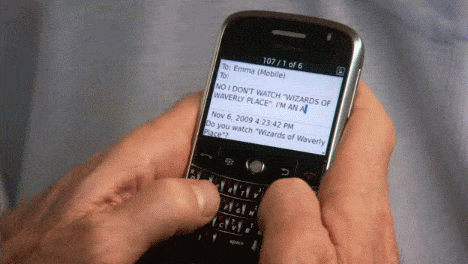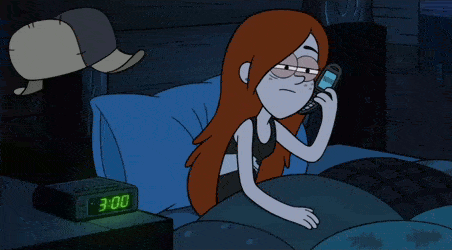We couldn’t live without it, but for many of us, email is slowly taking over our lives, and what was meant to be an efficient and time-saving mode of communication is actually producing an opposite effect.
The findings of a number of worrying psychological studies have been released in recent years that all point to the harmful effects of receiving too much email. These harmful effects range from more stress, poor communication, and a loss of productivity.
Hmm, not good at all…
Recently at KarryOn we’ve given you some awesome tip on how to send kick @ss emails, and you’re definitely encouraged to give it a read – it will help reduce the potential time drain that is email and help you make the most of your time in the office. (Speaking of offices, you may also want to read the seven things I learnt about working in an office from the one and only, Mr. David Brent.)
But, just in case you don’t see why you should dramatically reduce your reliance on email in your day-to-day life, here are five scientific studies that’ll hopefully convince you to see the light.
1. It takes 64 seconds to recover from an email

Via giphy.com
Studies have revealed that we are very quick to respond to emails that have landed in our inbox. In fact, around 70 percent of us react to a new email within six seconds, and 85 percent within the first two minutes. This may sound good and all, but that same study found that it took over a minute for participants to resume their train of thought before the email interruption.
This means that each time you react to an email, you’re effectively delaying the completion of the task you were previously engaged in by about a minute. Consider that most office workers receive on average around 50 emails per day, and you can see the huge effects email can have on productivity.
2. You check your email more than you think…

Via giphy.com
Contrary to what you may believe, odds are you’re already firmly in the grip of an email addiction, and you don’t even know it!
In one study, participants who claimed that they only checked their email once every hour, were, on proper examination, found to check their email at a frequency of once ever five minutes. Woah!
Indeed, all of us are guilty of seriously underestimating just how much time we spend on email, and how big of a distraction it can be in our lives.
3. Email notifications are a source of stress

Via giphy.com
According to psychologists, constant email notifications on our smartphones are a “toxic source of stress” and are little by little eroding our happiness. Quite a strong claim, right? But the evidence is definitely pointing that way.
Numerous studies have found that constantly checking and reading emails as they arrive on our phones is dramatically increasing tension and worry in users. They even go so far as to say that you should disable any “push notifications” on any mail apps on your phone to save yourself from this added stressor, and only use email when you need to, instead of letting it run in the background.
4. Dealing with email consumes around 23 percent of our day

Via giphy.com
In a diary study that monitored how much time participants spent checking and sending email in various occupations, it was found that nearly a quarter of the working day was consumed in dealing with email. Just think about what you could do with an extra two hours each day?
5. Checking emails after you wake up and before bed is bad

In a UK study of over 2,000 participants, it was found that checking emails right after waking up and just before bed were two habits that greatly increased stress. Directors of the study recommend implementing an “email curfew” to keep email out of these times; for example, not checking emails before 9am or after 5pm.
Now, isn’t that great advice? The only issue is committing to it…
Sources: PsyBlog, Telegraph, News.com.au






